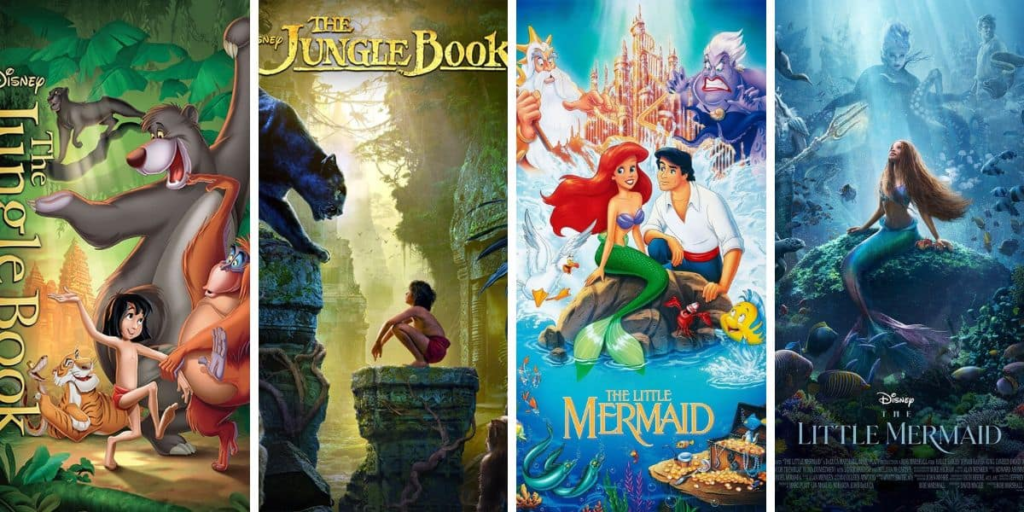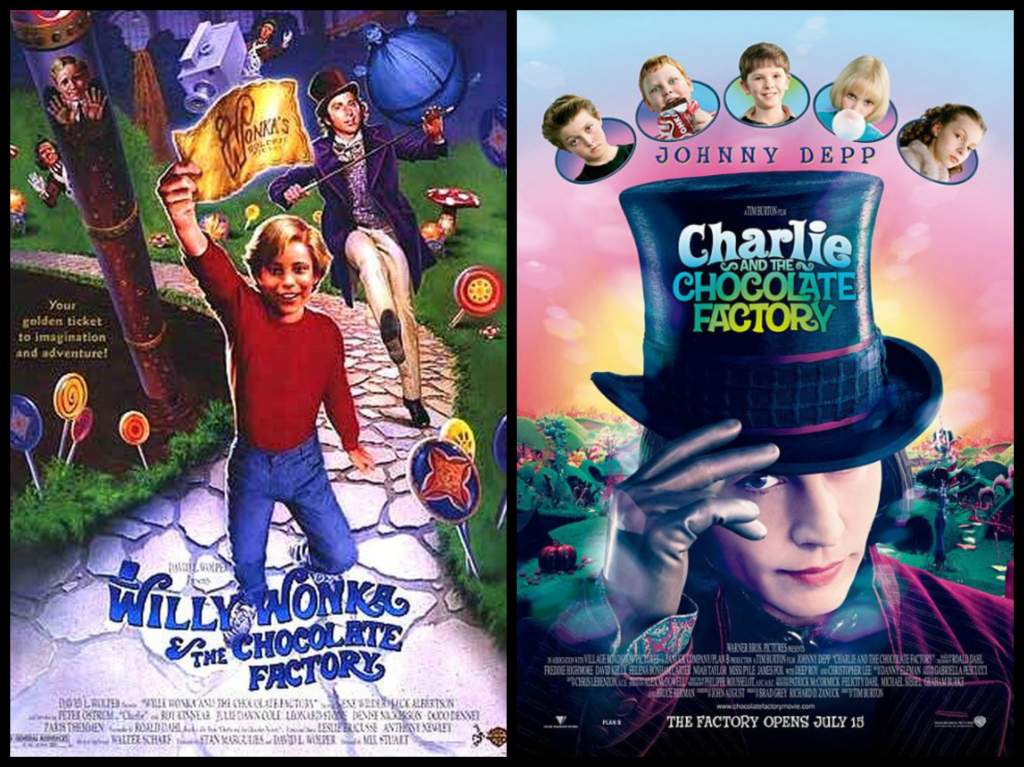
Introduction: The popularity of remakes and reboots in movies and TV shows
In recent years, the entertainment landscape has seen a surge in remakes and reboots of beloved movies and TV shows. From classic films getting modern adaptations to iconic series being reimagined for new audiences, it seems that Hollywood is keen on revisiting its cinematic past. Fans often find themselves asking: are these fresh takes on familiar stories capturing the magic of the originals? Or do they pale in comparison to their predecessors? This ongoing debate around remakes vs. originals stirs up nostalgia while challenging our perceptions of film quality and audience preference. Let’s dive into this fascinating conversation about what makes a story timeless or timely, as we explore both sides of this captivating cinematic analysis.

Defining remakes and originals
Remakes and originals play distinct roles in the cinematic landscape. The original film is a fresh concept, birthed from an idea that often reflects its time. These films introduce audiences to new characters, stories, and emotions.
On the other hand, remakes take an existing narrative and reimagine it for a modern audience. They may retain core elements but can significantly alter themes or settings to resonate with contemporary viewers.
Originals often face the challenge of establishing themselves amid audience expectations. Meanwhile, remakes capitalize on nostalgia while also risking backlash if they fail to capture what made the original beloved.
Both forms have their unique charm and challenges. Understanding these definitions sets the stage for deeper exploration into their merits and drawbacks in today’s entertainment debate.
Pros and cons of remakes
Remakes can breathe new life into classic stories. They often introduce beloved narratives to younger audiences who might not have experienced the originals. This fresh perspective can ignite interest in a franchise or genre that feels stagnant.
However, remakes come with their own challenges. Fans of the original may approach them with skepticism or outright disdain. The fear of tarnishing a cherished film is palpable among critics and viewers alike.
Additionally, modern adaptations sometimes lean too heavily on nostalgia, risking creativity for familiarity. A remake risks losing its essence if it fails to innovate while trying to honor its predecessor.
That said, successful remakes expand on themes and characters in ways that resonate deeply today. When done well, they become part of a larger cinematic conversation rather than mere copies of classics.

Pros and cons of originals
Original films often captivate audiences with their fresh ideas and unique storytelling. They provide a canvas for creativity, allowing filmmakers to explore uncharted territories. This novelty can lead to groundbreaking narratives that resonate deeply.
However, original content faces its own set of challenges. With no established fan base or recognizable characters, these films may struggle to attract viewers initially. Audiences sometimes hesitate to invest time in something unfamiliar.
Moreover, the risk of failure is higher for original productions. If a new concept flops at the box office, it can discourage studios from taking chances on innovative projects in the future.
Despite this uncertainty, successful originals become classics that stand the test of time. Their ability to challenge conventions and inspire sequels or remakes can solidify their place in cinematic history.
Case studies: Successful reboots vs successful originals
When diving into the realm of successful remakes, “It” (2017) stands out. This modern adaptation of Stephen King’s classic novel captivated audiences worldwide. With a fresh take on horror, it breathed new life into an iconic story while keeping its haunting essence intact.
On the other hand, original films like “Get Out” (2017) carve their own niche in cinematic history. Jordan Peele’s debut seamlessly blended social commentary with psychological thrills. It not only entertained but also sparked vital conversations about race and society.
Both types resonate differently with viewers. Remakes often rely on nostalgia and familiarity to draw crowds, while original films entice audiences with innovation and creativity.
Another notable mention is “A Star Is Born.” The 2018 version beautifully reimagines previous iterations while highlighting contemporary issues in music and relationships. Meanwhile, the original narrative continues to inspire filmmakers across generations. Each example showcases unique strengths that enrich our entertainment landscape.

The impact of nostalgia on the success of remakes
Nostalgia plays a powerful role in the success of remakes. When audiences are drawn back to beloved classics, their memories often serve as a protective barrier around these films.
A remake can tap into this emotional reservoir. It evokes cherished moments associated with the original, creating an instant connection for viewers. This longing for yesteryear can drive ticket sales and streaming views.
However, nostalgia isn’t always a guarantee of success. If a remake fails to capture what made the original special, it risks alienating fans who hold those memories dear.
Moreover, modern adaptations might reinterpret themes or characters in ways that resonate with contemporary audiences but diverge from the source material. Balancing homage and innovation becomes crucial in this delicate dance between past and present.
In today’s entertainment landscape, tapping into nostalgia is both an art and a strategy that filmmakers must navigate carefully.
Creative liberties taken in remakes
Remakes often take creative liberties that can redefine the source material. Filmmakers might update settings, alter character arcs, or introduce new themes to resonate with contemporary audiences.
These changes can breathe fresh life into classic stories. For example, a remake set in a modern context may highlight issues like technology and social dynamics that were non-existent during the original’s release.
However, not all alterations are welcome. Fans of the originals sometimes resist these shifts, feeling they dilute or misinterpret beloved narratives.
Striking a balance between innovation and respect for tradition is key in this process. When done thoughtfully, remakes can offer something unique while still honoring their roots.
This dance between homage and originality creates dynamic discussions—highlighting why “remakes vs. originals” remains an engaging topic for cinephiles everywhere.

Conclusion: Is one truly better than the other? Or is it subjective?
The debate surrounding remakes vs. originals is as old as cinema itself. Each side presents compelling arguments and unique perspectives that cater to different audience preferences. Remakes often breathe new life into classic movies, making them accessible for modern viewers while capitalizing on nostalgia and established fan bases. They can introduce innovative storytelling techniques or technological advancements that enhance the original concept.
On the other hand, original films bring fresh ideas and imaginative narratives to the screen, unhindered by previous interpretations. They challenge filmmakers to think outside the box and offer audiences something new rather than a reiteration of past successes.
Determining which is better comes down to personal taste. Some may favor the familiar comfort of beloved classics reimagined for today’s audience, while others cherish originality’s boldness and creativity. The cinematic landscape thrives on both remakes and originals, each playing a crucial role in enriching our entertainment experience.
Whether you gravitate towards movie remakes or original films might reflect your own values in storytelling—be it nostalgia or innovation—and that’s what makes this debate so engaging within cinematic analysis today.
Read more about the Top 5 Remakes!
For more such content, keep visiting QAWire


